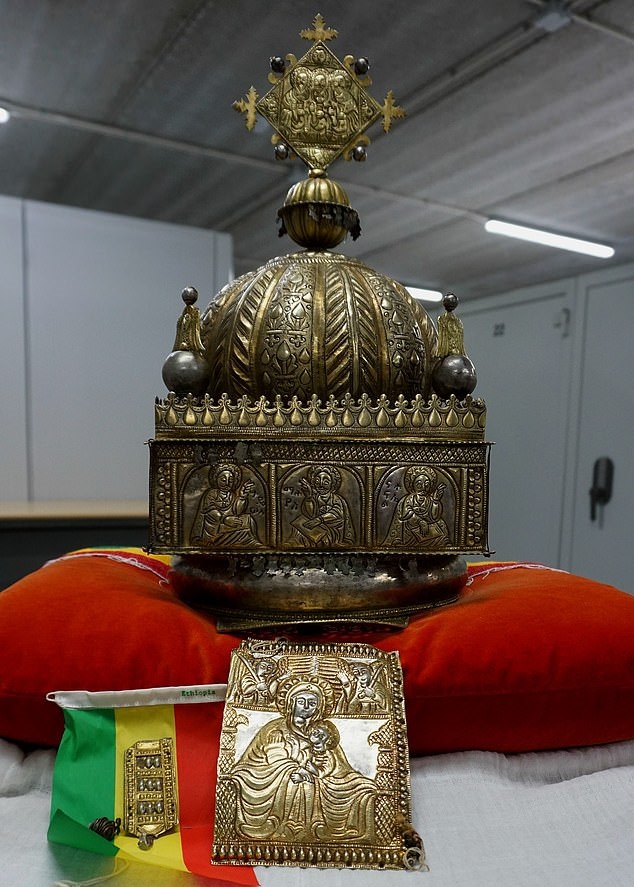Here Is What Sirak Asfaw Did When He Found A Priceless 18th-Century Crown In A Suitcase

What would you do if you find a priceless 18th-century crown in a suitcase?
In 1998, Sirak Asfaw, a Dutch-Ethiopian hosted Ethiopian pilots, refugees, and diplomats who were passing through Rotterdam. In the suitcase of one of his visitors, he saw an 18th-century Ethiopian crown.
“I looked into the suitcase and saw something really amazing and I thought ‘this is not right. This has been stolen. This should not be here. This belongs to Ethiopia’.”
Asfaw confronted the owner of the suitcase and told him the crown will not leave his house.
“[I told him the crown] will not leave my house unless it goes back to Ethiopia.” The owner obliged and gave him the artifact.
Why Sirak Asfaw became the custodian of the Ethiopia crown
Shortly after having the crown in his custody, he went to a message board to ask what people thought he should do to ‘an Ethiopian artifact’. Some suggested he should turn it over to the Dutch government. Fearing the Dutch government may claim it, he decided to keep it.
For 21 years, he hid the priceless Ethiopia crown in his apartment waiting for the right time to return it. However, Ethiopians who knew he had the treasure tried to pressure him into returning it.
Asfaw, who became a refugee during the ‘Red Terror’ purge where as many as 500k Ethiopians were killed in a bloodbath, talked about his decision saying
“I did not want to return it to the same regime that had made it possible for the crown to get stolen. [I decided to be the custodian] until such time it could go back. I knew if I gave it back, it would just disappear again.”
With the coming into power of Abiy Ahmed, the atmosphere was ripe to return the crown. Consequently, he contacted Arthur Brand, a Dutch ‘art detective’ and told him about the crown. In an interview, Mr. Brand said,

“It turns out that Sirak Asfaw had been the custodian of a rare 18th-century Ethiopia crown for the past 21 years and wants to give it back. It was a story straight from a crime thriller.”
After returning the artifact, Asfaw said, “This is Ethiopian cultural heritage, this is Ethiopia’s identity and finally it feels good to give it back.”
Striking features of the artifact
The Ethiopia crown is made of gilded copper. The body of the crown, around the base, bears the image of the Holy Trinity and the 12 Apostles. The crown is one of the less than 20 that were made—and the most valuable of them all. The artifact bears the date 1633-34 but a research associate at Oxford University, Jacopo Gnisci suggests it may have been made a century later. He believes a powerful warlord, ‘ras’ Welde Sellase gave the crown to the church in Cheleqot, a village near Mekelle in northern Ethiopia. After confirming the authenticity of the artifact, Gnisci said,
“These crowns are of great cultural and symbolic significance in Ethiopia, as they are usually donated by high-ranking officials to churches in a practice that reaches as far back as the Late Antiquity. These crowns are of priceless symbolic value and it is important that they be returned to Ethiopia,”
The last time the Ethiopia crown was seen in public was in 1993. At that time it was worn by a priest in a photograph. However, it disappeared afterward. Investigations were launched but the culprit was never found. The artifact is currently held in a secure facility in the Netherlands pending further actions.







Responses